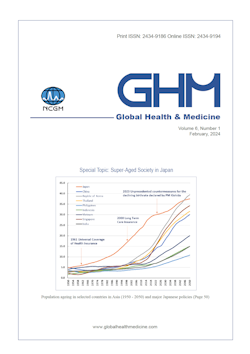Global Health & Medicine 2022;4(6):309-314.
Outcomes following cholecystectomy in human immunodeficiency virus-positive patients treated with antiretroviral therapy: A retrospective cohort study
Aso K, Ito K, Takemura N, Tsukada K, Inagaki F, Mihara F, Oka S, Kokudo N
The number of the human immunodeficiency virus (HIV)-positive patients are increasing worldwide, and more HIV-positive patients are undergoing urgent or elective cholecystectomy. There is still insufficient evidence on the relationship between surgical complications of cholecystectomy and antiviral status in HIV-positive patients. The purpose of the present study is to evaluate surgical outcomes after cholecystectomy in HIV-positive patients. Records of consecutive HIV-positive patients who underwent cholecystectomy between January 2010 and December 2020 were reviewed retrospectively. Patients were divided into urgent and elective surgery groups. Urgent surgery was defined as surgery within 48 hours of admission. Postoperative complications were evaluated according to the Clavien-Dindo classification. A total of 30 HIV-positive patients underwent urgent (n = 7) or elective (n = 23) cholecystectomy. Four complications (13.3%) occurred, and the rate was significantly higher in the urgent group than in the elective group (p = 0.008). However, all complications were minor (3 cases of grade I and one case of grade II), and there were no severe postoperative complications. There was no significant difference in CD4+ lymphocyte status in all patients and between the 2 groups before and after surgery (p = 0.133). No cases of postoperative deterioration in the control of HIV infection were observed. In conclusion, cholecystectomy in HIV-positive patients with controlled HIV under recent antiretroviral therapy may be performed safely even in an emergency situation.
DOI: 10.35772/ghm.2022.01051







